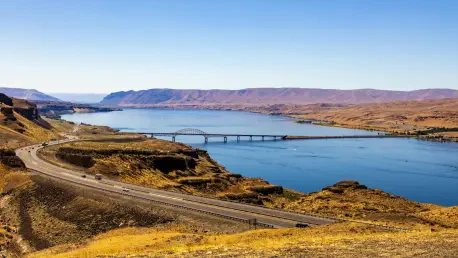Sustainability at a Crossroads
Underneath the surface of the Columbia Basin’s churning waters, an intense struggle unfolds, blending ancient traditions with modern demands. As the call for renewable energy surges, so does the pressing question: How can a balance be found between the region’s burgeoning energy needs and the ancestral rights of Indigenous tribes dependent on the ecosystem? The stakes are high, as this ongoing battle is emblematic of a worldwide challenge involving economics, culture, and the environment.
The Imbalance of Progress and Preservation
At the heart of the Columbia Basin conflict lies a myriad of agreements and historical rights. Indigenous tribes in the area, including the Yakama and Nez Perce, have relied on the salmon runs for generations, a practice protected by treaties dating back to the 19th century. The construction of hydroelectric dams in the region has upset this balance, threatening traditional lifestyles. This local issue mirrors broader discussions about sustainability and the delicate dance between development and ecological stewardship. The U.S. decision to withdraw from the Resilient Columbia Basin Agreement further complicates these conversations, restoring an atmosphere of uncertainty.
Diverse Stakeholders with Conflicting Goals
The area’s energy sector sees the basin as a critical resource, driven by the explosive growth of AI and cryptocurrency technologies, which have escalated power demands. Washington State projects a significant increase in electricity consumption, highlighting an urgent need for robust energy infrastructures. In contrast, Indigenous rights advocates mourn the consequences of these developments, citing irreversible damage to salmon populations and distress within their communities. River operations essential for power generation directly conflict with efforts to rehabilitate the diverse ecosystems central to regional traditions.
Personal Narratives and Opinions
Tribal leaders passionately speak about the imperiled state of their cultural heritage, asserting their treaty rights to fishing grounds that have sustained their communities for centuries. Chairman Gerald Lewis of the Yakama Nation warns against the escalating pressures on salmon populations and insists on intervention before extinction becomes a grim reality. Meanwhile, figures in the power industry stress the necessity of meeting future energy demands, emphasizing the role of dams in ensuring a reliable electricity supply. Discussions among environmentalists and economists reflect a broader dialogue on remedying these opposing needs and exploring innovative compromises.
Finding a Way Forward
There are glimpses of potential pathways toward reconciling energy aspirations with tribal autonomy. Collaborative strategies might involve exploring new energy innovations, diversifying the power supply with alternatives like solar and wind. These approaches could offer fresh avenues to reduce dependence on hydroelectric power. Inclusivity in decision-making is another pivotal step, incorporating Indigenous voices to shape sustainable energy practices. Efforts must be made to align these multifaceted interests, establishing frameworks that honor treaties while adapting to contemporary challenges.
Embracing a Sustainable Future
As the situation unfolded, it became clear that the region’s journey toward sustainability was far from linear. Balancing energy developments with the rights of Indigenous peoples involved listening, learning, and innovating. The narrative transcended regional borders, urging a unified approach to conserving vital ecosystems while pursuing economic growth. Essential steps will involve fostering dialogue, investing in clean technologies, and prioritizing ecological integrity. With collective action and respectful negotiation, promising solutions could emerge, shaping a more equitable and sustainable future for all.









